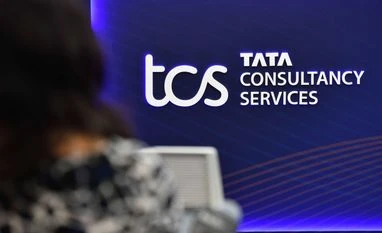TCS cuts quarterly variable pay for senior staff despite return to office
This marks the second consecutive variable pay cut at TCS for senior employees despite adherence to the work-from-office directive
)
TCS, Tata Consultancy Services
Listen to This Article
Tata Consultancy Services (TCS) has reduced quarterly variable pay (QVA) for senior employees for the second consecutive quarter, despite them adhering to the company’s work-from-office policy, according to a report by Moneycontrol, citing sources.
In the July-September 2024 (Q2FY25) quarter, some employees received only 20-40 per cent of their QVA, while others received nothing. In contrast, Q1FY25 payouts were nearly 70 per cent. The October-December 2024 quarter saw further reductions, with some employees receiving just 25 per cent of their expected variable pay.
“I was supposed to get Rs 50,000-55,000 in QVA, but last quarter I got half, and this quarter it was even less, at a fourth,” a TCS employee told Moneycontrol. According to the report, around 70 per cent of TCS employees – mainly junior staff – received their full QVA, while senior employees’ payouts depended on the performance of their respective business units.
Work-from-office policy tied to variable pay
TCS introduced a policy in 2023 linking variable pay to office attendance. Employees meeting an 85 per cent attendance threshold were eligible for full QVA, while those with 75-85 per cent attendance received 75 per cent of their QVA. Employees with 60-75 per cent attendance got only 50 per cent, and those with less than 60 per cent attendance were ineligible for the bonus. Non-compliance could also result in disciplinary action.
TCS profit rises, headcount drop
TCS reported a net profit of Rs 12,380 crore for Q3FY25, marking an 11.9 per cent increase from Rs 11,058 crore in Q3FY24. However, adjusting for a one-time legal claim settlement of Rs 958 crore in Q3FY24, the year-on-year (Y-o-Y) net profit growth stood at 5.5 per cent.
Revenue grew 5.6 per cent Y-o-Y to Rs 63,973 crore but fell 0.4 per cent sequentially.
In the same quarter TCS’ headcount dropped by 5,370 employees, reversing two consecutive quarters of workforce expansion. The company, however, remains optimistic about future demand, reporting a deal pipeline worth over $10.2 billion, even in a seasonally weak quarter affected by furloughs and discretionary spending cuts by clients.
More From This Section
Don't miss the most important news and views of the day. Get them on our Telegram channel
First Published: Feb 06 2025 | 4:26 PM IST